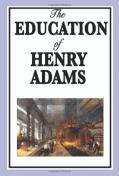BKMT READING GUIDES
The Education of Henry Adams
by Henry Adams
Paperback : 324 pages
0 club reading this now
0 members have read this book
Introduction
The Education of Henry Adams is the Pulitzer Prize winning autobiography of Henry Adams. The Education is much more a record of Adams's introspection than of his deeds. It is an extended meditation on the social, technological, political, and intellectual changes that occurred over Adams's lifetime. Adams concluded that his traditional education at Harvard failed to help him come to terms with the rapid changes he saw in his lifetime; hence his need for self-education. Adams repeatedly laments that his formal education, grounded in the classics, history, and literature, as was then the fashion, did not give him the scientific and mathematical knowledge needed to grasp the scientific breakthroughs of the 1890s and 1900s. The organizing thread of the book is how the "proper" schooling and other aspects of his youth, was time wasted; thus his search for self-education through experiences, friendships, and reading. Many consider this the best autobiography ever written.
Editorial Review
Many great artists have had at least intermittent doubts about their own abilities. But The Education of Henry Adams is surely one of the few masterpieces to issue directly from a raging inferiority complex. The author, to be sure, had bigger shoes to fill than most of us. Both his grandfather and great-grandfather were U.S. presidents. His father, a relative underachiever, scraped by as a member of Congress and ambassador to the Court of St. James. But young Henry, born in Boston in 1838, was destined for a walk-on role in his nation's history--and seemed alarmingly aware of the fact from the time he was an adolescent.It gets worse. For the author could neither match his exalted ancestors nor dismiss them as dusty relics--he was an Adams, after all, formed from the same 18th-century clay. "The atmosphere of education in which he lived was colonial," we are told,
revolutionary, almost Cromwellian, as though he were steeped, from his greatest grandmother's birth, in the odor of political crime. Resistance to something was the law of New England nature; the boy looked out on the world with the instinct of resistance; for numberless generations his predecessors had viewed the world chiefly as a thing to be reformed, filled with evil forces to be abolished, and they saw no reason to suppose that they had wholly succeeded in the abolition; the duty was unchanged.Here, as always, Adams tells his story in a third-person voice that can seem almost extraplanetary in its detachment. Yet there's also an undercurrent of melancholy and amusement--and wonder at the specific details of what was already a lost world.
Continuing his uphill conquest of the learning curve, Adams attended Harvard, which didn't do much for him. ("The chief wonder of education is that it does not ruin everybody concerned in it, teachers and taught.") Then, after a beer-and-sausage-scented spell as a graduate student in Berlin, he followed his father to Washington, D.C., in 1860. There he might have remained--bogged down in "the same rude colony ... camped in the same forest, with the same unfinished Greek temples for workrooms, and sloughs for roads"--had not the Civil War sent Adams père et fils to London. Henry sat on the sidelines throughout the conflict, serving as his father's private secretary and anxiously negotiating the minefields of English society. He then returned home and commenced a long career as a journalist, historian, novelist, and peripheral participant in the political process--a kind of mouthpiece for what remained of the New England conscience.
He was not, by any measure but his own, a failure. And the proof of the pudding is The Education of Henry Adams itself, which remains among the oddest and most enlightening books in American literature. It contains thousands of memorable one-liners about politics, morality, culture, and transatlantic relations: "The American mind exasperated the European as a buzz-saw might exasperate a pine forest." There are astonishing glimpses of the high and mighty: "He saw a long, awkward figure; a plain, ploughed face; a mind, absent in part, and in part evidently worried by white kid gloves; features that expressed neither self-satisfaction nor any other familiar Americanism..." (That would be Abraham Lincoln; the "melancholy function" his Inaugural Ball.) But most of all, Adams's book is a brilliant account of how his own sensibility came to be. A literary landmark from the moment it first appeared, the Autobiography confers upon its author precisely that prize he felt had always eluded him: success. --James Marcus
Discussion Questions
No discussion questions at this time.Book Club Recommendations
Recommended to book clubs by 0 of 0 members.
Book Club HQ to over 88,000+ book clubs and ready to welcome yours.
Get free weekly updates on top club picks, book giveaways, author events and more








